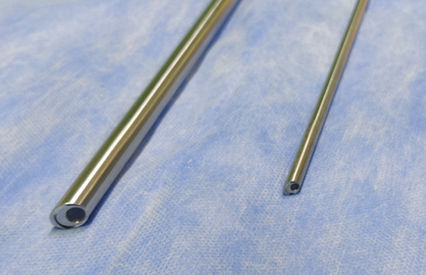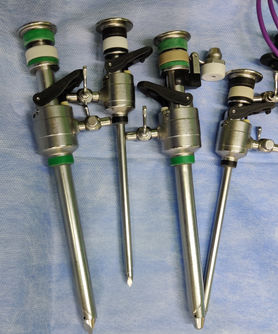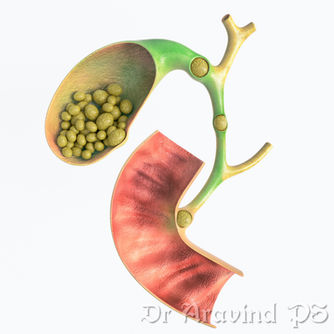
Dr. Aravind P.S.
MBBS, MS (General Surgery), M.Ch. (Surgical Gastroenterology), FMAS, FIAGES
Consultant Surgical Gastroenterologist
Laparoscopic Surgeon
Laser Surgeon
GI & HPB OncoSurgeon
laparoscopic surgery

-
Laparoscopic surgery is also known as Minimal Invasive Surgery/ Key Hole Surgery
-
It is a modern surgical technique where surgery is done by small incisions by using special laparoscopic instruments compared to traditional open surgery in which a single long cut is made into the body
-
The other types of minimal invasive surgery include thoracoscopic surgery (thorax), arthroscopic surgery (joints) etc.
What are the advantages of laparoscopic surgery compared to conventional open surgery?
-
Less pain
-
Cosmetically better
-
Lesser hospital stay
-
Early return to work

Is laparoscopic surgery safe?
-
Yes. In the hands of experienced surgeon many surgeries can be done safely by laparoscopy
What are the commonly done laparoscopic GI surgeries?
-
Laparoscopic Cholecystectomy for Gall Stones
-
Laparoscopic CBD exploration for CBD stones
-
Laparoscopic Choledochal cyst (CDC) excision
-
Laparoscopic Fundoplications for acid reflux diseases
-
Laparoscopic cardiomyotomy for achalasia cardia
-
Laparoscopic appendicectomy for appendicitis
-
Laparoscopic splenectomy for splenic disorders
-
Emergency laparoscopic procedures (Duodenal perforation, small bowel obstruction etc.)
-
Intestinal surgeries
-
Pancreatic surgeries
-
Bariatric (weight loss) surgeries
-
Laparoscopic liver surgeries
-
GI and HPB Cancer surgeries
Is laparoscopic surgery feasible in gastrointestinal cancers?
-
Yes. Many gastrointestinal cancer surgeries can be done laparoscopically with safety and efficacy comparable to open surgery
What are the commonly done gastrointestinal cancer surgeries by laparoscopy?
-
Esophageal cancer
-
Stomach (Gastric cancer)
-
Small intestinal cancer
-
Colon Cancer
-
Rectal cancer
-
Pancreatic cancer
-
Liver Cancer



















